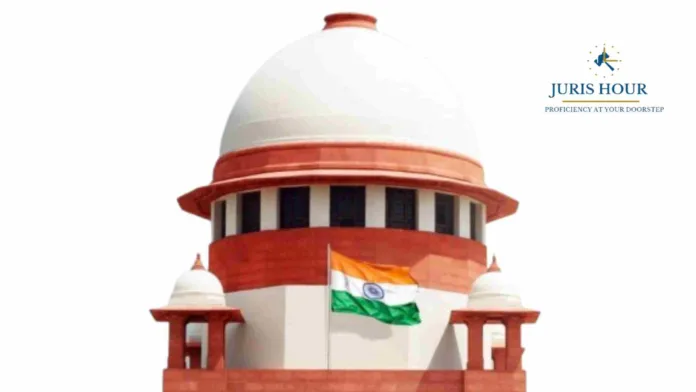This article is written by Unnati V. Chhangani, a Fourth Year Law Student, Jai Narayan Vyas University, Jodhpur.
The Supreme Court ruled that policy decisions relating to economic and administrative considerations, such as fiscal viability and sustainable pension costs, are a matter for policymakers and should not be taken into account unless they are considered as unconstitutional.
The division bench of Justice Abhay S. Oka And Justice Augustine George Masih observed that the RBI’s fixation of 01.07.2020 as the date for the commencement pension under the 2020 scheme is not arbitrary, illegal or discriminatory.
The respondent was well informed about the details regarding the non-grant of arrears of pension and eligibility for pension from a particular date i.e. 01.07.2020 and having accepted the same taken benefit thereof, it was not open to the Respondent to challenge a part of the said Scheme, this led to the dismissal of writ. But upon being discontented from such dismissal a writ appeal was presented before the division bench of high court which thereupon the acceptance of the writ ruled in favour of respondent that “ Denial of such arrears of pension from the date of retirement was held to be discriminatory and arbitrary at the hands of the RBI and the respondent was entitled to pension benefits from the date of retiremen.
Aggrieved by the Kerala high court division bench judgement the RBI filed an SLP, where it stressed that the 2020 pension option was a separate scheme voluntarily accepted by the respondent and which could not be partially accepted or contested as respondent cannot sail on two boats at a same time. More over respondent was given the opportunity to opt for the RBI pension regulation, 1990 scheme not for once but quadruple times i.e in the year 1990, 1992, 1995 and 2000 respectively. Each time the invitation of such offer was made inter alia with terms and conditions laid down in the circular as per the needs of policy makers.
Henceforth, respondent taking up the opportunity this time crystal clearly indicates that he has implicitly consented for the terms and condition of Administration Circular No. 1 which said, “Retired employees of the Bank who had earlier retained CPF option, subject to refund of amount of Bank’s contribution to Provident Fund with accrued interest paid to them at the time of their retirement, along with simple interest @3% per annum calculated from the date of receipt of the amount by the employee till the date of refund to the Bank.
(iv) Option for switch-over from CPF to Pension under the Pension Regulations, once exercised, shall be irrevocable
(xi) After completion of all formalities, eligible retired employees will start drawing pension with from July 1, 2020. No arrears of pension will be paid for the period prior to July 1,2020.”
The bench opined that it was specifically so noted and mentioned that the retired employee would start drawing pension with effect from 01.07.2020, and no arrears of pension would be paid for the period prior thereto.
The bench has also opined that the pension circulars were of administrative nature rather than regulations.
“circular was independent in itself where the competent authority had taken a well-informed, considered, and gauged decision with regard to the applicability, liability and financial implications apart from the other aspects. Each time, as is apparent, different aspects were taken note of. In some cases, it was provided for retrospective effect, while in others it was restricted to employees up to a particular date, and yet another only to those employees who were in service while on yet another occasion to both ex-employees and in-service employees”, the Court Stated.
The court observed that the Courts should not meddle in the Economic policy making process unless it’s manifestly arbitrary or unconstitutional.
The Court took precedence of Mohammad Ali Imam and Others where in this case court observed that Government can fix a cut-off date based on factors like economic conditions, financial constraints, and administrative needs can courts will interfere only when it’s arbitrary or erratic. Moreover, policymakers should be given a tenacity in policymaking.
The court observed that economic considerations are germane to governmental policy decisions, and distinguishing between retirees based on such a date does not violate Article 14 of the constitution.
The court also observed that these administrative circulars squarely lied Within the periphery of rule – making authority and in the domain of judiciary.
The Supreme Court upheld the RBI’s decision to fix 01.07.2020 as the cut-off date for granting pension under the 2020 scheme, ruling that such a decision—based on financial viability, administrative feasibility, and other bureaucratic considerations—was not discriminatory or erratic.
The Court also invoked the principle of approbate and reprobate, holding that a beneficiary cannot blow same hot and Cold in the same breath.
Case Details
Case Title: The Reserve Bank Of India V/S M.T. Mani And Another
Citation: CIVIL APPEAL NO. 13962 OF 2024




